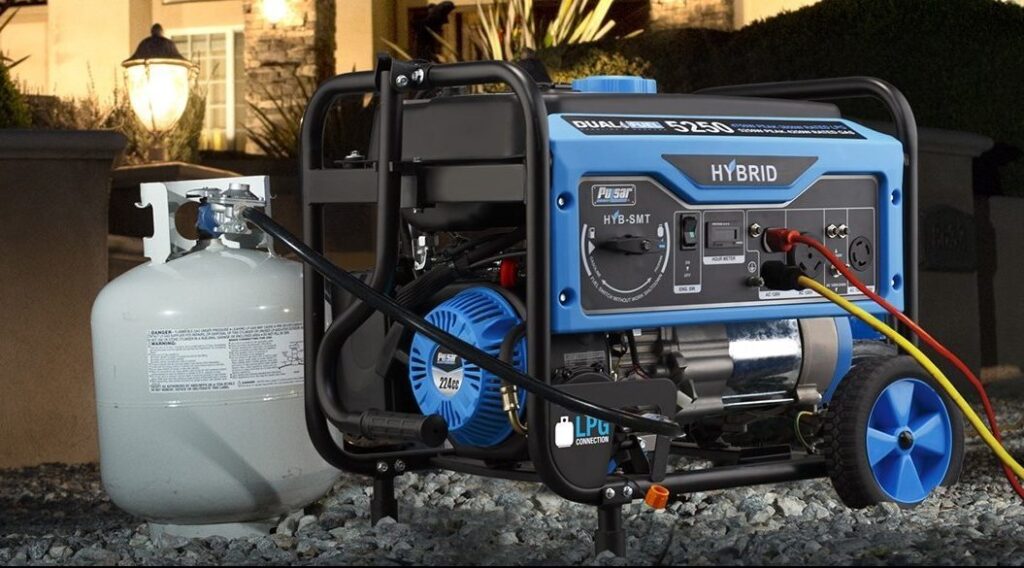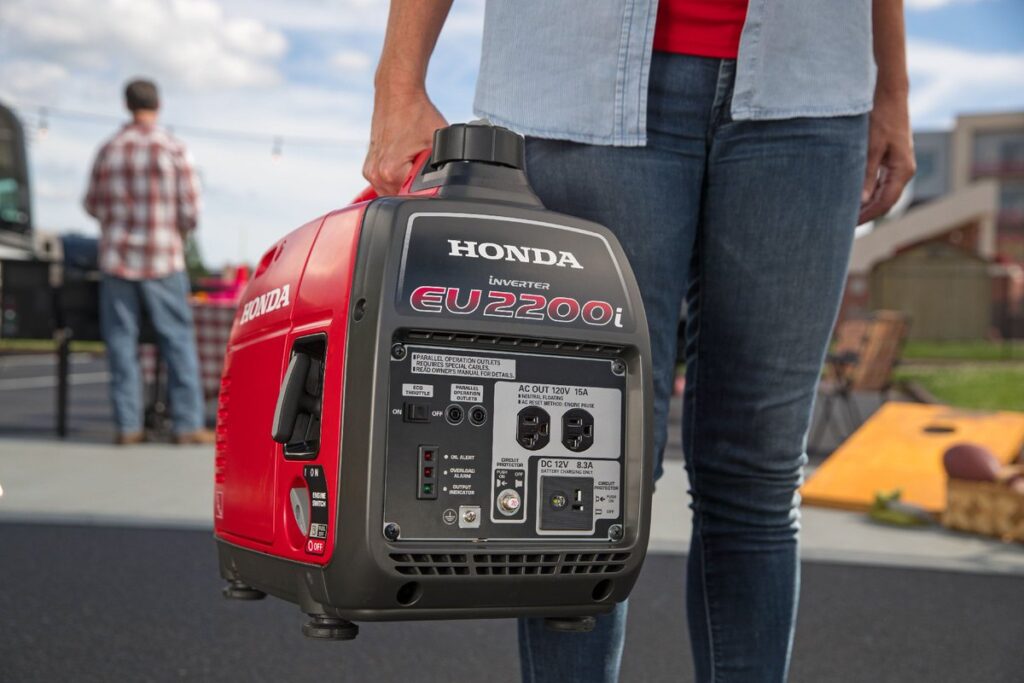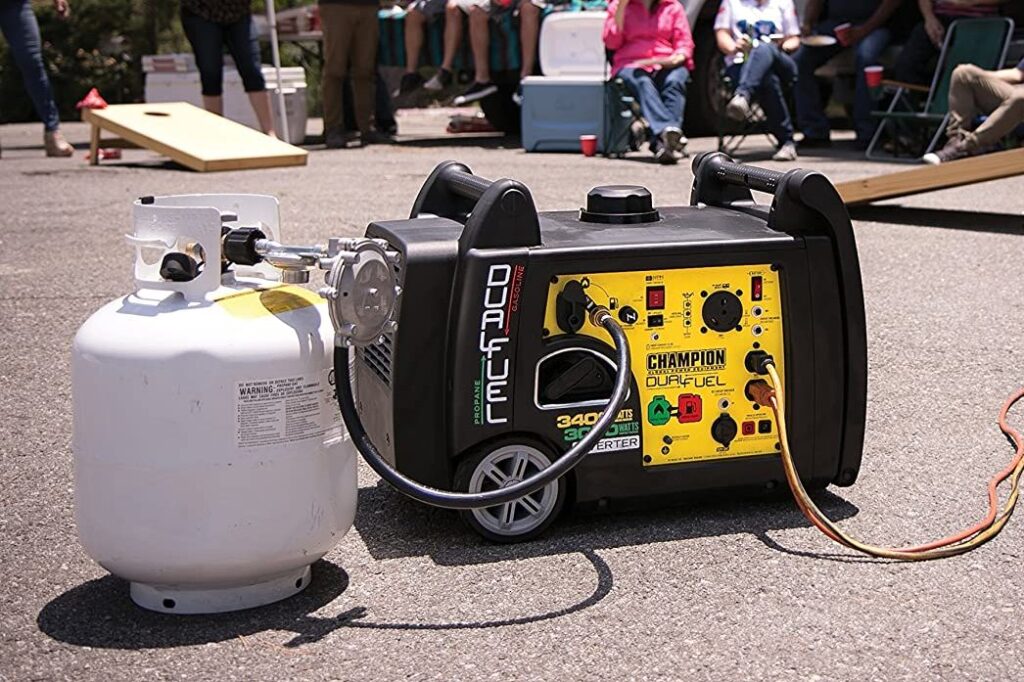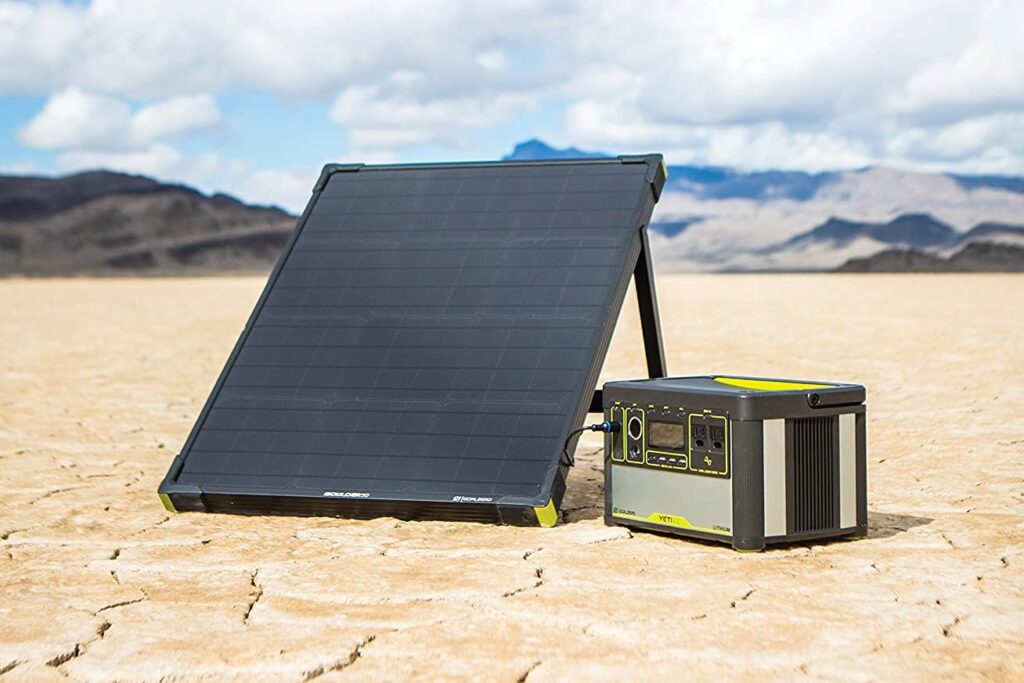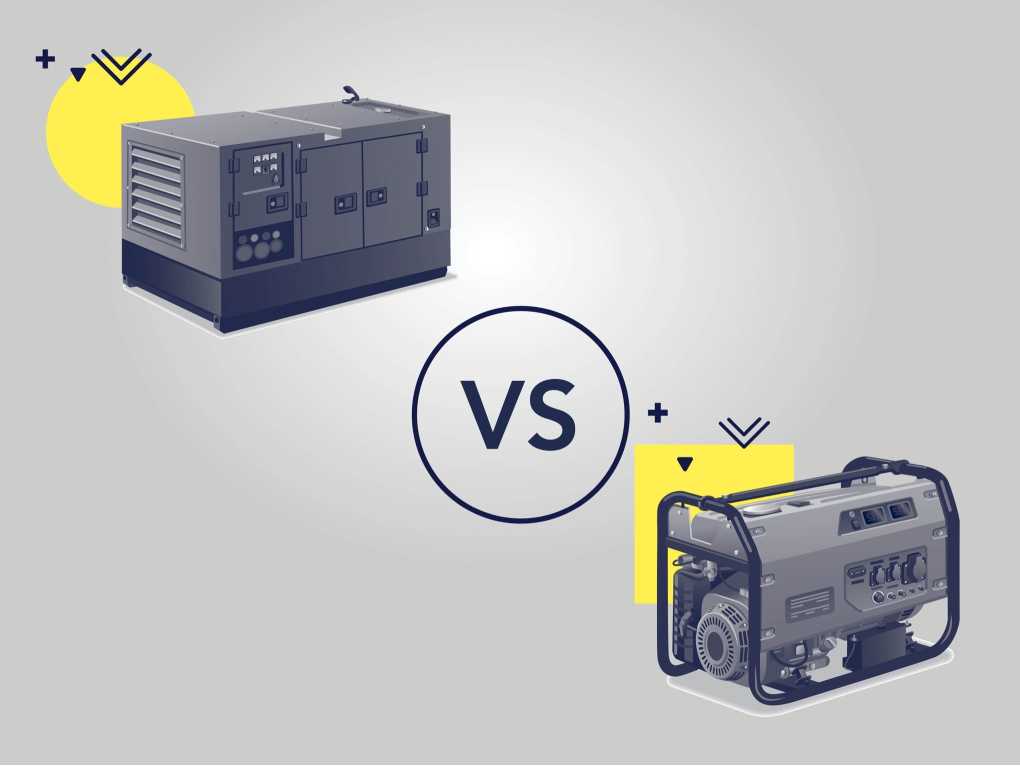When the power goes out, having a backup generator powerful enough to keep the essential appliances in your home going can make a huge difference. Running household appliances takes a significant amount of energy, so you’ll need a generator that packs enough wattage to be able to handle everything you need. A 7500-watt generator offers the right balance of power, size, and cost to fulfill the needs of your home during an outage.
We’ve tested 11 models and compiled a list of the best 5 with the Westinghouse WGen7500 being our top pick. Almost all models on the list have 420cc OHV engines, making them relatively quiet for their power output, and a few models with 439сс engines offer slightly more power. Their tank capacity varies from 5.7 to 8 gal. (20-30l) which is enough to keep the generator running for 8-12 hours on a single tank.
More features: electric, remote, and recoil start, automatic low oil shutoff, lifetime technical support
This powerful generator from Westinghouse boasts of the most impressive surge power of any 7500-watt generator we reviewed with a maximum output of 9500 watts. More than that, this generator is well-equipped for use at home, to power an RV, or even for use at an off-grid worksite. Users loved the electronic start, which removes the hassle of a standard recoil start, as well as the included remote that allows the generator to be started from inside the house or RV.
The generator has a moderate 6.6-gallon fuel tank but is relatively fuel efficient thanks to the four-stroke, 420cc motor that sits at its center. When running at half load, the generator can run for up to 11 hours on a single tank – a runtime rivaled only by the Cat generator, which uses up over one gallon more of fuel over that timeframe. At the same time, this generator is the quietest among units we reviewed with a noise level of just 73 dB.
The main panel of the generator is generously outfitted, and all of the outlets have removable covers to protect the generator. There are four standard 120V household outlets and a 120/240V twist-lock outlet as well as a display panel that shows how much wattage the generator is drawing and the estimated runtime remaining. However, there is no 12V outlet for charging batteries, USB outlet for charging small electronics, and no RV-ready outlet for RV owners to easily install this generator.
Westinghouse includes a three-year limited warranty with the generator, although users did not report any issues with it over several years of use.
More features: electric start, low oil shut-off sensor, Intelligauge, Volt Guard built-in surge protector
This dual fuel generator from Champion is distinguished by its ability to run using gasoline – which is often less expensive and stores for longer periods without going stale – as a fuel source. This generator is capable of 6750W of running power and 8400W of surge power.
The generator has a relatively small fuel tank at almost six gallons and correspondingly is limited to a runtime of just eight hours on gasoline when running at half load.
Users loved the electric start on this generator, but many complained about the noise it produces. Although the generator is rated for just 74 dB – barely louder than the Westinghouse unit – users found that it sounded much louder than this and many were unwilling to run it at night.
A welcome feature on this generator was the Intelligauge surge protection, which protects the generator and automatically shuts it off when it is overloaded with wattage. In addition, it has a low-oil indicator light and automatic shutoff to protect the engine from damage. In addition to four standard 120V outlets, there is a 30A twist-lock outlet and an RV-ready twist-lock outlet.
Champion includes a three-year limited warranty with this generator.
More features: gasoline/propane-powered, electric, and recoil start, approved by the USDA Forest Service
The Firman Power Dual Fuel Generator is another option that deserves a feature on this list. The 9400W maximum surge power is relatively impressive, although the generator does normalize to about 7500W power production after a short while. That said, the 9400W/7500W power rating only applies when you use gas as the fuel source.
Remember that this machine is a dual-fuel option, and you can choose to use LPG instead. However, if you do make this decision out of necessity or because you want to, the surge and running power will drop to 8450W and 6750W, respectively. That said, the manufacturer ships the generator with an extended propane hose that you might need when connecting the device to a larger LPG tank.
As for the gasoline, you can put it in the 8-gallon gas tank built into the machine. A full tank will give you around 12 hours of use when the machine is at half-load. Also, the Max Pro Series 439cc FIRMAN engine that runs the machine is worth mentioning. After all, it is one of the more energy-efficient models by the manufacturer, and it also tends to run cool.
Additionally, the machine comes with a muffler to keep the engine relatively quiet as it runs. However, people still complain that it is loud. Starting the generator is also generally not a problem. The push of a button will work nine times out of ten, although a recoil start is also included as a backup. Lastly, the generator features a generous helping of outlets to power your household devices.
What we liked:
What could be better:
More features: electric start, low-oil shutdown
Users love this 7500-watt generator from Simpson for its burly power production, but have some issues with its noise that make it more suitable for use on an off-grid jobsite than for use in a residential neighborhood or an RV. The generator is capable of producing 9300 watts of surge power, on par with competing 7500-watt generators. However, whereas most generators in this category produce less than 80 dB of noise, users measured this generator at over 95 dB of noise when in use. They also found that the waveform of the electricity that it outputs is relatively noisy, making it more suitable for power tools than for sensitive electronics like home appliances and computers.
That said, this generator impresses in its fuel efficiency and outlet offerings. The generator has just a six-gallon tank yet is able to run for up to eight hours at half load. The outlet panel includes two locking 30A outlets in addition to the four standard 120V outlets. However, note that there is no 12V DC outlet for battery charging.
Users also appreciated that the generator has an electric start feature, but beware that despite the price of this unit it does not come with a battery for the electric start. They noted that although the unit is designed to be wheeled around easily, it weighs in at over 200 pounds and can be hard to move onto and off of a truck for transport. In addition, while residential users receive a standard three-year warranty, commercial users are limited to a one-year warranty from Simpson.
More features: electric and recoil start, LED lit control panel, automatic low oil shut down
This burly generator from Cat is as suitable for heavy use at off-grid worksites as it is for home use. The 420cc OHV engine is capable of producing 9375W of surge power, although it is worth noting that the fuel efficiency of this engine cannot compare to generators boasting four-stroke engines. With a massive eight-gallon fuel tank, this generator runs for 11 hours at half load – more than many other 7500-watt generators, but on par with the Westinghouse generator that has just a 6.6-gallon tank.
The generator has an electric start as well as a recoil start, which users found starts up the engine within the first one to two pulls every time. In addition, the generator face has a small display that makes it easy to keep track of how much wattage you are running from it. Although Cat does not publish a rating for this generator, users found it to be on par with other 7500-watt generators in terms of noise.
The outlets are heavy on standard and shop options, featuring two 30-amp outlets for powering heavy tools in addition to four standard 120V outlets for appliances. Users taking this generator into remote worksites greatly appreciated the heavy-duty frame on this generator, which features burly rubberized wheels that can easily travel over rough, uneven terrain.
Cat offers a three-year limited warranty on the generator, although users found that it worked reliably over extended periods of use.
Now that you’ve learned more about our five favorite 7500-watt generators on the market today, how do you choose between them to get the generator that is right for your needs? In our buying guide, we’ll cover everything you need to know about how a 7500-watt generator can provide the power you need for essential appliances and what features to look for when choosing a generator in this power class.
In order to determine what you can power with a 7500-watt generator, you need to find out how much wattage all of the appliances in your home use. Importantly, appliances like refrigerators and air conditioners – anything with a motor – will have two different wattage ratings: running wattage and surge wattage. Running wattage describes how many watts the appliance uses to keep running once it has already started. However, motor-driven appliances have a higher power draw when they are first starting up, which is described by the surge wattage.
You need to make sure that the sum of all the running wattages of the appliances you want to power with your 7500-watt generator is less than 7500 watts, while the sum of all the surge wattages plus the running wattages of non-motorized appliances is less than the surge wattage that your generator is rated for.
Let’s look at an example of what a 7500-watt generator can power in the standard home. A 1000-watt microwave, a standard refrigerator and freezer, and a hot water heater together use about 6,500 watts. This leaves you enough leftover power to run the lights in a few rooms as well as to power small electronics like cell phones and laptops. Note, however, that the starting wattage on a refrigerator and freezer can be quite high – over 1,000 watts in many cases – so you’ll need to make sure to plug this in first so you don’t exceed the surge wattage of your generator with all of the other appliances already drawing power from it.
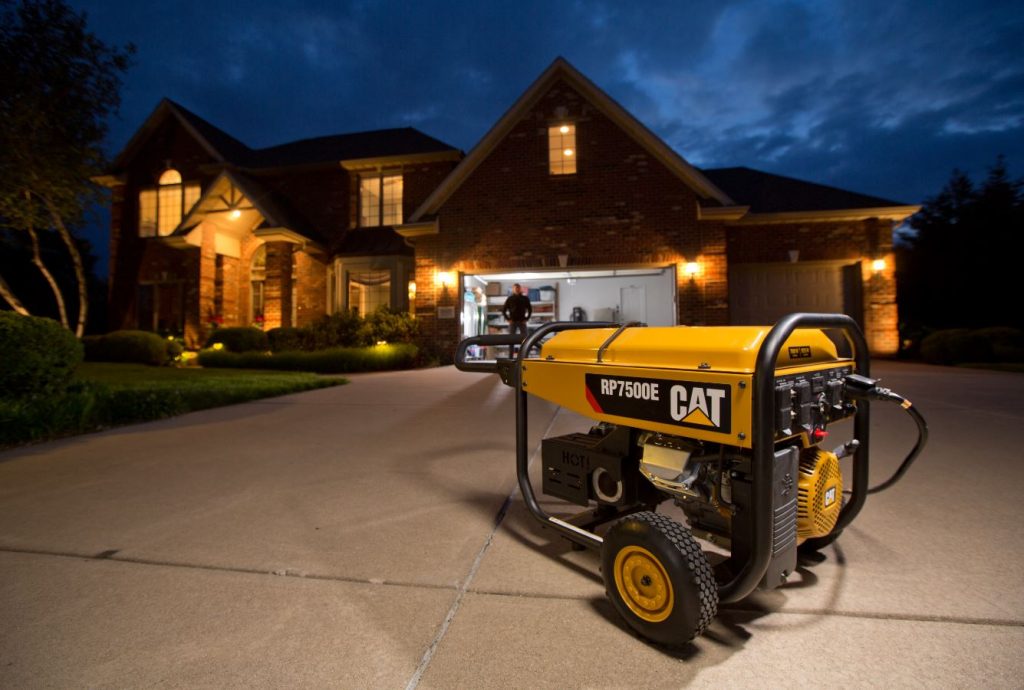
Any generator on the market, regardless of its power class, will have both a rated and maximum output power. The rated power describes the amount of wattage that a generator is capable of producing consistently for as long as it is running. For all of the 7500-watt generators that we reviewed, 7500 watts is the rated power. To calculate the running power you need, simply add up the running wattages of all the different appliances that you plan to plug into the generator.
However, any appliances that have motors, such as air conditioning units, refrigerators, and freezers, will have an additional power draw when they are first started. This is where the maximum output wattage, also known as surge wattage, comes into play. Your generator will only be able to support this maximum power for a few seconds, long enough to start these appliances without stalling as the power requirement surges. If you have left yourself leeway when calculating your running power requirement, your generator will likely provide enough surge power to get all your appliances started as well.
The engine is the component of the generator that converts fuel – either gasoline or propane – into electrical energy. For this reason, the engine is truly the heart of your generator. In general, a more powerful engine will produce more power – which is why the engine sizes on most 7500-watt generators are comparable, in the vicinity of 420cc.
All of the generators we reviewed, with the notable exception of the dual fuel Champion and Firman generators, run only on gasoline. That means they are constructed with a built-in fuel tank to hold a reservoir of gasoline as they run, and that the size of this tank is correlated with the runtime. Fuel tank capacities are typically in the six- to seven-gallon range since this size of tank does not require a huge generator to contain, although the larger Cat generator is capable of holding nearly eight gallons of gasoline.
Note that while a larger tank will correlate with a longer runtime since the generator has more fuel to burn, runtime also depends on the fuel efficiency of the generator.
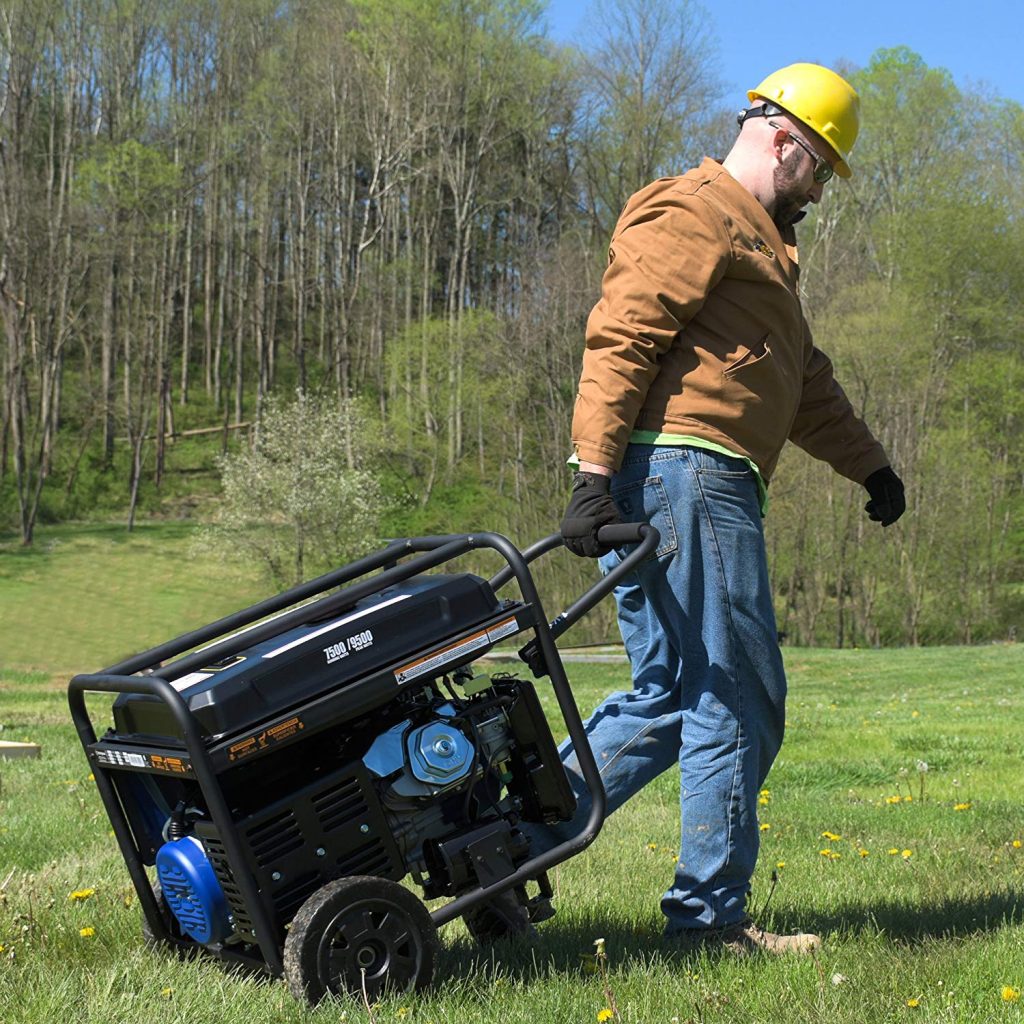
Runtimes are typically measured at half-load (i.e. half of the rated wattage) and range from eight hours on the Simpson generator to up to 11 hours on the Westinghouse and Cat generators.
The number and types of outlets on a generator are important since they can present a limit on how many and what types of appliances you can run. All of the generators that we reviewed offer at least four 12A/120V standard household outlets, and it is possible to plug a surge protector strip into these outlets to produce more outlet space. If you plan to use your generator for an RV as well as at home, look for generators like the Champion that offer RV-ready twist-lock outlets.
In addition, a 12V DC outlet can be extremely useful for charging small devices or charging batteries, which can be especially important if you are carrying your generator in an RV.
Although your generator will be outside, many generators produce enough noise to not only keep your whole house awake at night but also your neighbors. If you’re using your generator in an RV, the noise can also take away from the peacefulness of being outdoors.
Generator noise levels typically depend foremost on the size of the motor – therefore, noise levels don’t range hugely among 7500-watt generators. The Westinghouse generator is the quietest generator we reviewed at 73 dB, although the Champion generator is just behind it at 74 dB.
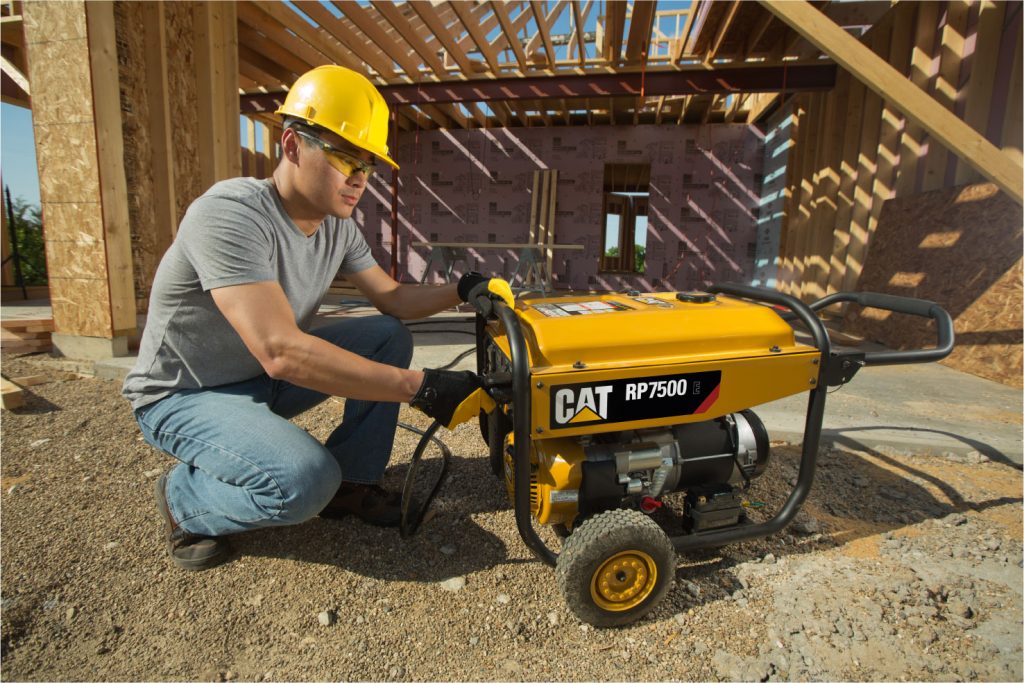
Generator size and weight typically vary with the output wattage and motor size, so there is not much difference in the dimensions or weight of the generators we reviewed. Many generators, including all of the 7500-watt generators we reviewed, come mounted on frames with wheels to make portability easier. However, note that these frames do add weight of their own if you expect to carry your generator up and down stairs or lift it into a truck bed frequently.
A 7500-watt generator is a significant investment, so you want to be sure that your generator will work like new for many years to come. The best way to ensure this is with a lengthy manufacturer’s warranty, which protects you if anything goes wrong with your generator. All the generators we reviewed come with a 3-year warranty.
Our three overall favorite 7500-watt generators on the market today are the Westinghouse WGen7500, the Champion Power Equipment 100165, and the Firman Power Dual Fuel Generator. The Champion generator is unique in that it is a dual fuel generator capable of using either gasoline or propane to produce electricity, which can be extremely helpful if you use your generator in a variety of different situations. In addition, the Champion generator has a built-in surge protector to prevent you from damaging the unit by plugging in too many appliances. The Firman Power Dual Fuel Generator has 9400W maximum surge power which is relatively impressive. It also has a dual-fuel option. We feel that the Westinghouse generator is the overall best 7500-watt generator given its low 73 dB noise output and impressive 9500-watt surge power along with the promise of lifetime technical support from Westinghouse.
